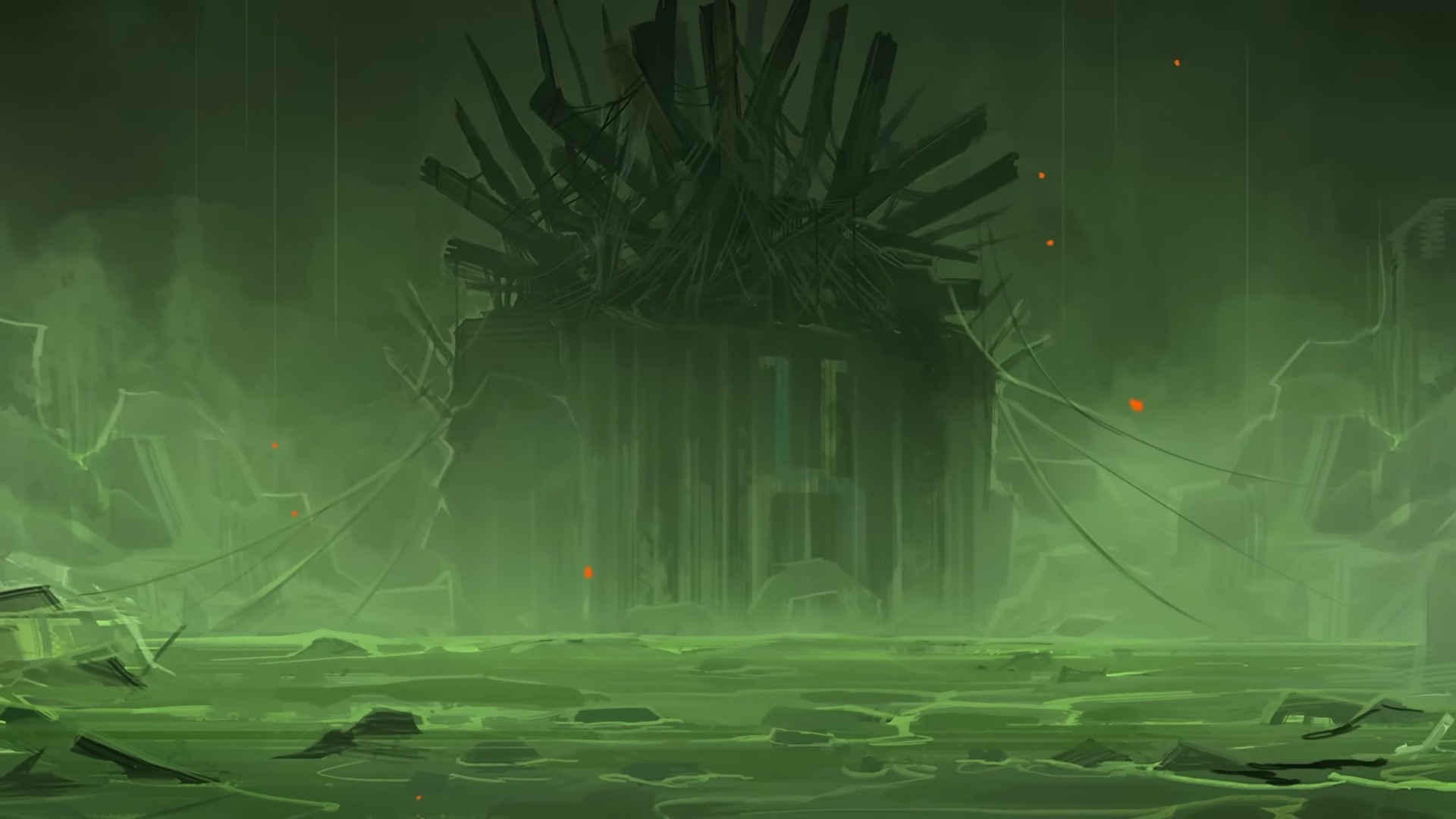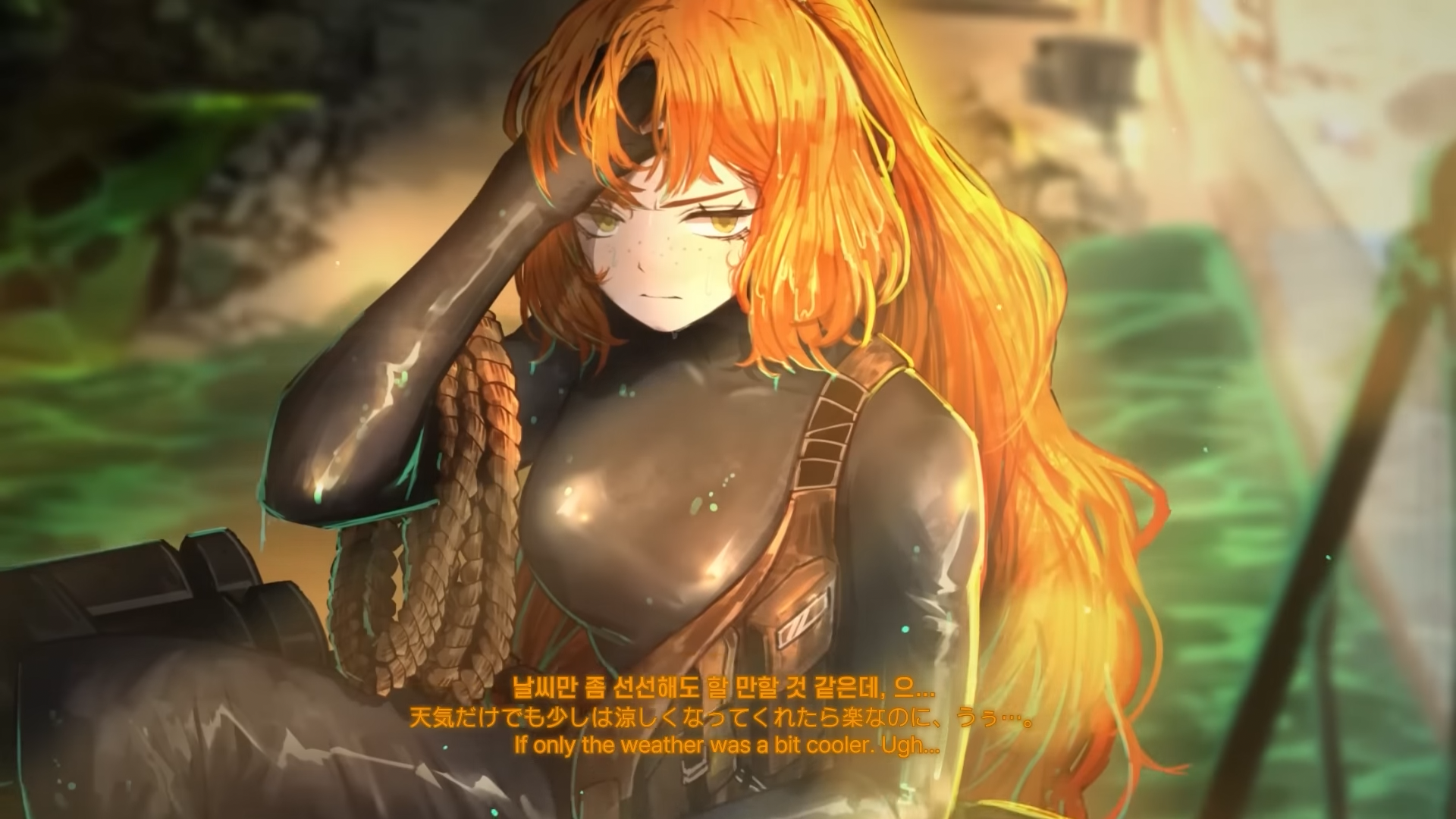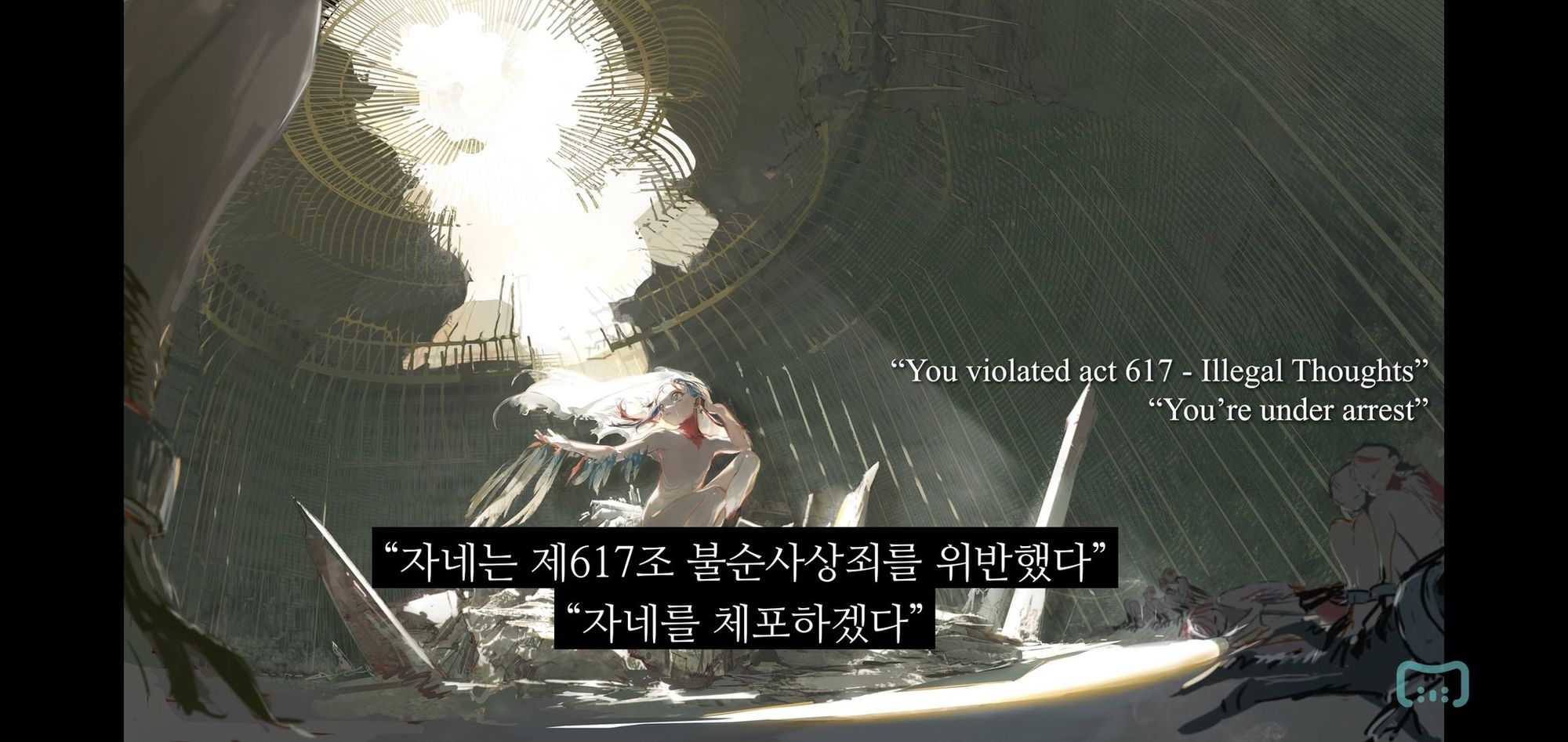Why Diversity Matters
And why I left Korea; also, anime tiddies!

There was a game I really liked. It was called Limbus Company, and its developers, Project Moon, started off as what is essentially a college literature circle - very humble beginnings.
Perhaps due to their roots (i.e. not professional game developers), their games were very “indie” to start off with, and had many rough edges; however, because of their roots, their games always had heavy literary references, and more importantly, had progressive themes - themes that resonated with many.
For example, all three games that they’ve developed are set in a place known as “the City”, in which giant corporations have absolute control over their territories, all morals are thrown out of the window in pursuit of profit (e.g. there’s a company that commits, films, and “imports” atrocities all over its territories in order to generate tears; there’s another company that sacrifices people to various monsters in the most horrific ways to make energy), with people who are blind to the disgustingly ugly truths of the world desperate to join the corporations and escape abject poverty, crime, and horrors that lie in the lower castes of society, perpetuating the cycle of misery, despair, and hatred.
So yeah, these are obviously completely apolitical games with no political messages whatsoever.
If you haven’t picked it up by now, this is a very obvious satire of Korea, which actually do have these megacorporations (they’re called Chaebols) that basically run the country (one Chaebol - Samsung - accounts for 20% of Korea’s GDP). The nation has extreme wealth inequality, extreme competition, extreme work culture, and has done extreme “historical acts” to escape the poverty of post-WW2 Korea.
This is basically the reason why you see hit media such as Squid Game and Parasite being made in Korea… because these media (including the games that Project Moon made) are a product of their environment, a reaction to all the things wrong that those in society live with, and even perpetuate.
But besides all of the horrible things above, there are many other things that Project Moon’s games portray. One crucial theme across their games is that of acceptance and identity.
Being persecuted because the characters have different ideas.
Being persecuted because the characters wanted to change things for the better.
Being persecuted because of who these characters simply are (I mean, in Limbus Company, there’s literally an entire branch of a company that actively hunts down those who have prosthetics - and the imagery very vividly conjures up numerous historical images of those who committed unspeakable atrocities in the name of “racial purity”, nationalism, and religion).

And, it shouldn’t surprise you that this, too, is a portrayal of an ugly side of Korea.
After all, it’s kind of what the game studio is known for.
Which brings us to today:
현재까지 파악된 게임 내 이슈에 대하여 저희의 공식 의견을 말씀드리고자 합니다. - 2 pic.twitter.com/B1bBsank32
— Limbus Company (@LimbusCompany_B) July 25, 2023
To explain this, we need to look at what Limbus Company is. It’s a gacha game, belonging in the same genre as games like Genshin Impact, Honkai Star Rail, Arknights, Fate: Grand Order, etc.
These games make money by making people “pull” (or basically gamble) for new characters. Basically, there are in-game currencies you can grind for or buy with “real” money, and you use these in-game currencies to roll the dice until it lands on a character that you like.
So there's a focus on continuously releasing new characters that people hopefully like, enough that they'd pull for them.
And, the elephant in the room is that most gacha games are known for being incredibly fanservice-y due to their similarity to anime in artstyle, which has a very young, socially isolated, and male-dominant demographics.
But not Limbus Company.
As it was a Project Moon game, it drew the same audience as their previous games, who were drawn by the setting, themes, and an incredible artstyle (which was drawn beautifully, but not in the typical “tits jiggling and overflowing from outfits, female characters with lots of bare skin showing, and a featureless main character that lonely men could self-insert to” way that you’d see in typical animated games).
So when it came time for a summer event - a staple in the gacha genre - long-time Project Moon fans weren’t expecting the same kind of “we’re using the summer event to go to the beach and show half-naked women in bikini” fanservice that you would see in many other gacha games.
Hell, many thought they’d try to turn that trope in its head and showcase characters with full diver suits (the kind where everything is covered up, even the face). After all, given the gritty setting and themes, the “beach episode” had a decent chance of being set not in beautiful beaches with white sands and pearly waters, but in an environmentally polluted wasteland (which, hilariously, is actually what happened).

But surprisingly, it showcased a female character that, while “fully clothed” (and on-brand for the game's gritty setting), featured huge bust size and skintight latex swimsuit. It wasn’t the typical bikini, but by god, were people thirsting over that character hard. Many thought it was even more erotic than the typical bikini you’d see in gacha summer events, because, well, it’s a goddamn skintight latex swimsuit.

So people were waiting eagerly for the summer event around the world (many, like me, just wanted new content for the game we loved; others… were, shall we say, “excited” to get their “hands on” the new character).
Apparently, all around the world except Korea.
Many outside of the Korean community for Limbus Company didn’t even notice that anything was up.
Until they started review-bombing the game.
Until they started spamming Project Moon’s twitter with hateful messages.
Until they started making physical threats to the people working at the Project Moon office.
Those outside of Korea looked on, wondering what the hell was going on.
The gist was that a bunch of Korean incels came out of their woodworks because, while many (like me) came to Limbus Company because they enjoyed Project Moon’s works, many came to Limbus Company because it was a gacha game, and they expected a gacha game-like summer event, with girls in bikinis.
No, I’m not joking.
They were complaining that the new male character had some skin showing (what) with “signs of slavery” (it’s a goddamn choker), while the female character was “covered up” (in a skintight latex suit though?) with no tits showing (you can clearly see the outlines of her huge breasts through that latex suit though?).

This, they asserted, was because of feminism. Yes, the radical feminists/feminazis (actual terms used by them) were why the male character was “exposed” and the female character was “covered up”. This was surely a sign of that dirty F word - feminism.
And so they started digging for dirt, and found… a deleted tweet from 2019 from one of the artists about how people shouldn’t take “Molka”s (sneak pictures taken without the woman’s knowledge or consent so that men could jerk off to it later - typically up-skirts and panty shots).
What?
“We shouldn’t take sneaky panty shots” somehow equals radical feminism, an oppression against the “gamer class” (i.e. these lonely, socially isolated, incel men who had never touched a woman before), really?
But they stuck with it, having found their “ammunition”, a root cause for why the female character was “covered up”, and really started cranking up the heat on Project Moon (there were “unplanned office visits”, to put it lightly) and the rest of the fanbase (justifying their incel behaviour in broken English), eventually culminating in the director of the game cracking under pressure and firing said artist.
This is the same studio that makes caricatures of Korea being insanely intolerant (think of any “-ism” or “-phobia”, and you’ll find that it applies to Korean society: racism, classicism, sexism, xenophobia, homophobia, transphobia, etc). And even then they had to cave to Korean men’s anger about “muh feminism” (again, “we shouldn’t take panty shots” somehow equals “oppression” and “feminazis”?) and “muh oppression” against men???
This kind of intolerance, hate speech, and bigotry against people who are different in any way - whether it be gender, identity, ideas, or literally anything else - is the very reason why I begged mom to please let me leave Korea and go anywhere, anywhere else, 15 years ago.
I’m honestly at a loss.
Surely, I thought, after 15 years, Korea would’ve changed, that it would’ve grown to be more tolerable to those who are different.
But today, I was shown that, no, it’s still the same 15 years later. The Korea I left behind is still the same Korea today.
And, honestly, it’s on me for expecting anything to have changed, because the root cause still hasn’t changed: Korea is an extremely homogeneous society - ideologically, racially, and otherwise.
I know that many Westerners looking in may see a “harmonious society” with no “racial tensions” or “divisive politics” that they see in their countries (because the entire country is extremely homogeneous). But as hard as it may be to deal with people with all sorts of differences - skin colour, socioeconomic background, gender and sexual identity, ideologies, etc. - it is precisely through living with, interacting with, and seeing with our own eyes these different people that we learn to reject our “monkey brain” fear of those who are different from us, that we learn that all these people are not the ‘monsters’ that we think of them as, that these people have more in common with us than not.
There’s no faster way to “-ism”s and “-phobia”s than to surround yourself with only those who look, act, and think the exact same as you, and in a country where everyone else has the same race, identity, and culture, people don't get to interact with others who are materially different from them - hence, why the Korea of today hasn’t changed a bit from the Korea I left behind, 15 years ago.
And as for me, well, I’m going to stop playing the game. “Go touch grass”, as the kids say. I cannot in good conscience support a company (even if it’s the same company that brought us this incredible critique of Korean society through their games) that fires their employee - without notice - because of “muh feminism”. They have failed to protect their employees, they have failed their employees, and they have failed all of their longtime, non-incel fans.

